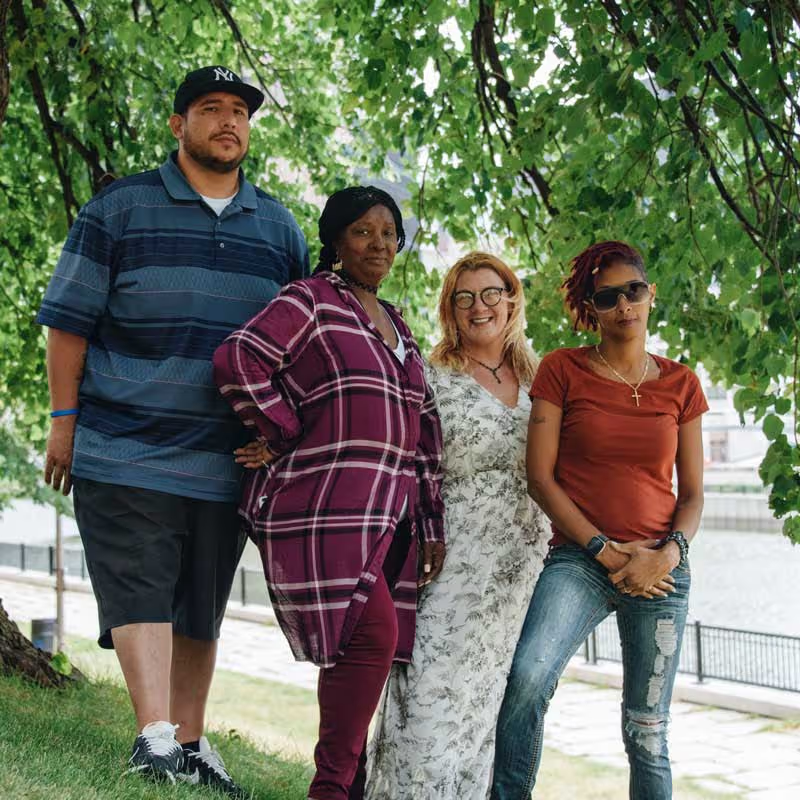
Our Services & Campaigns
Our direct services are designed to holistically support people affected by criminalization, incarceration and community disinvestment and mitigate the harm of involvement with the criminal legal system. At the same time, we work to decarcerate New York by building power with people and families, challenge racist and dehumanizing narratives that justify systems of mass incarceration and win legislative change.
Find Support
We offer programs, direct services and opportunities across New York for people who have been impacted by mass incarceration, criminalization and community disinvestment.
FIND SUPPORT





Join our growing community.
CCA builds power with currently incarcerated people, formerly incarcerated people and families with incarcerated loved ones. Learn more and get involved.
Get Involved
Locations
New York City Office & Brooklyn Wellness Center
25 Chapel Street 7th Floor
Brooklyn, NY 11201
718-858-9658
Fax: 718-858-9670
CCA’s Seeds to Roots Youth Action Center
179 Livonia Avenue
Brooklyn, NY 11212
917-813-0116
Freedom Commons
450 Burt St
Syracuse, NY 13202
315-422-5638
Syracuse Office & CCA’s CUSE Center
115 E. Jefferson Street Suite 200
Syracuse, NY 13202
315-422-5638
Fax: 315-471-4924
Rochester Office & CCA’s CORE Center
130 Andrews Street
Rochester, NY 14604
585-328-8230
Fax: 585-328-8232
Westchester Office
150 Grand Street
White Plains, NY 10601
607-351-7462






